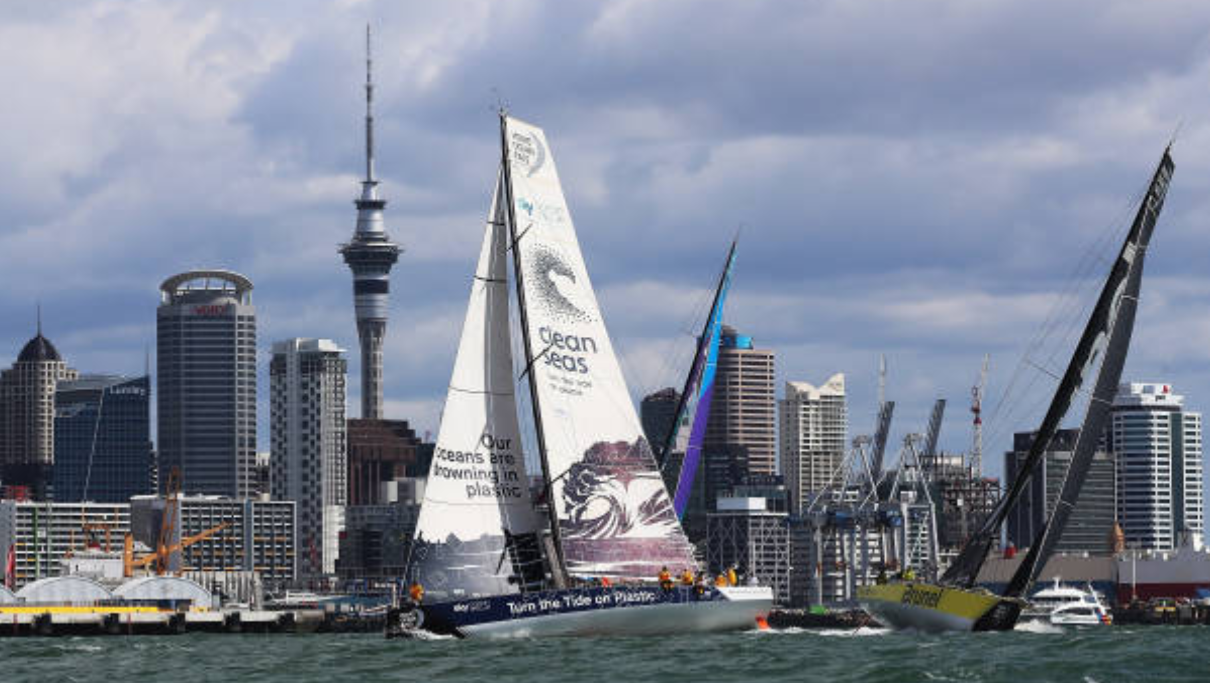Plastic contamination ‘killing the human race’
New research uncovers microplastics in every corner of the planet

A free daily email with the biggest news stories of the day – and the best features from TheWeek.com
You are now subscribed
Your newsletter sign-up was successful
Plastic contamination will have a “catastrophic” effect on human health unless urgent action is taken, according to experts.
The warning comes as analysis of seawater collected during the Volvo Ocean Race, an extreme round-the-world sailing event, “proved conclusively that plastic pollution has spread to every part of the planet”, says Sky News.
What is plastic contamination?
The Week
Escape your echo chamber. Get the facts behind the news, plus analysis from multiple perspectives.

Sign up for The Week's Free Newsletters
From our morning news briefing to a weekly Good News Newsletter, get the best of The Week delivered directly to your inbox.
From our morning news briefing to a weekly Good News Newsletter, get the best of The Week delivered directly to your inbox.
Recent studies have revealed the unprecendented extent to which the Earth’s waters are polluted with microplastics, defined as plastic debris less than 5mm in length. Oceans are awash with plastic, and recent studies have shown that microplastic contamination is also present in tap and bottled water.
What does the latest study show?
Seawater samples collected by a yacht taking part in the 45,000-mile Volvo Ocean Race revealed that tiny fibres of plastic can be found almost everywhere.
The highest readings were taken close to big population areas, with 349 particles per cubic metre of seawater in the South China Sea close to Hong Kong. Even in the remotest parts of the Southern Ocean, hundreds of miles from land, the researchers found 26 particles per cubic metre.
A free daily email with the biggest news stories of the day – and the best features from TheWeek.com
How will this affect humans?
Dr Luiza Mirpuri, co-founder of the Portugal-based environmental organisation Mirpuri Foundation, warns that plastic contamination is slowly “killing the human race”.
“Not now but in the third generation, because each time we have diseases, new diseases from new contaminants. We are having more cancer, more allergic diseases, more infertility. We are less fertile than our grandfathers,” she told Sky Atlantic’s Turn the Tide on Plastic documentary, which airs tonight at 8.30pm.
What do other experts say?
“Other scientists are more measured in their conclusions,” notes Sky News. However, there are growing concerns about the microplastics consumed by fish, which are then eaten by humans.
Dr Malcolm Hudson, environmental scientist at Southampton University, told Sky News: “We actually don’t know the extent of the risk at the moment.
“There will come a point where there will be so much plastic in the ocean that we will be facing hazards that could be endangering human life.”
Professor Alex Rogers, a specialist in sustainable oceans at Oxford University, told The Guardian earlier this month: “Many of these chemicals are pretty nasty and as they move up the food chain they may be having serious consequences for the health of wildlife, and ultimately humans.”
-
 6 exquisite homes with vast acreage
6 exquisite homes with vast acreageFeature Featuring an off-the-grid contemporary home in New Mexico and lakefront farmhouse in Massachusetts
-
 Film reviews: ‘Wuthering Heights,’ ‘Good Luck, Have Fun, Don’t Die,’ and ‘Sirat’
Film reviews: ‘Wuthering Heights,’ ‘Good Luck, Have Fun, Don’t Die,’ and ‘Sirat’Feature An inconvenient love torments a would-be couple, a gonzo time traveler seeks to save humanity from AI, and a father’s desperate search goes deeply sideways
-
 Political cartoons for February 16
Political cartoons for February 16Cartoons Monday’s political cartoons include President's Day, a valentine from the Epstein files, and more
-
 Epstein files topple law CEO, roil UK government
Epstein files topple law CEO, roil UK governmentSpeed Read Peter Mandelson, Britain’s former ambassador to the US, is caught up in the scandal
-
 Iran and US prepare to meet after skirmishes
Iran and US prepare to meet after skirmishesSpeed Read The incident comes amid heightened tensions in the Middle East
-
 Israel retrieves final hostage’s body from Gaza
Israel retrieves final hostage’s body from GazaSpeed Read The 24-year-old police officer was killed during the initial Hamas attack
-
 China’s Xi targets top general in growing purge
China’s Xi targets top general in growing purgeSpeed Read Zhang Youxia is being investigated over ‘grave violations’ of the law
-
 Panama and Canada are negotiating over a crucial copper mine
Panama and Canada are negotiating over a crucial copper mineIn the Spotlight Panama is set to make a final decision on the mine this summer
-
 Why Greenland’s natural resources are nearly impossible to mine
Why Greenland’s natural resources are nearly impossible to mineThe Explainer The country’s natural landscape makes the task extremely difficult
-
 Iran cuts internet as protests escalate
Iran cuts internet as protests escalateSpeed Reada Government buildings across the country have been set on fire
-
 US nabs ‘shadow’ tanker claimed by Russia
US nabs ‘shadow’ tanker claimed by RussiaSpeed Read The ship was one of two vessels seized by the US military